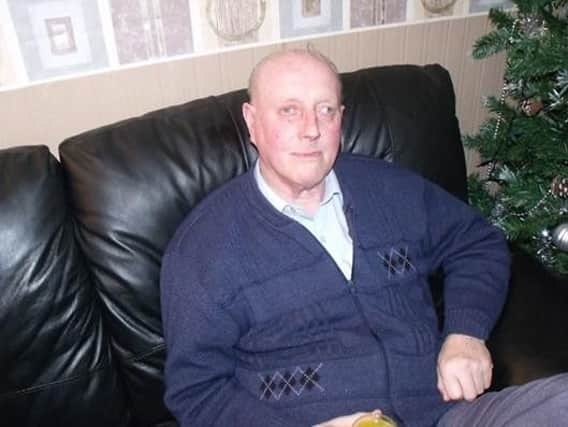Inquest held into death of much-loved Derbyshire man who suffered large internal bleed


Gordon Hibbert, 80, of Hardhurst Road, Unstone, passed away at Chesterfield Royal Hospital in July last year.
A coroner has now ruled Mr Hibbert died of a large gastrointestinal bleed which was partly caused by anticoagulation therapy - but he said this was 'necessary medical treatment'.
Advertisement
Hide AdAdvertisement
Hide AdMr Hibbert's inquest at Chesterfield coroners' court heard the retired foundry worker - who had pre-existing medical problems including lung disease and chronic kidney disease - was admitted to Chesterfield Royal Hospital on July 10 last year with complaints of chest pain and shortness of breath.
Doctors considered diagnoses of exacerbated lung disease and a blood clot in the lung, known as pulmonary embolism.
From July 13, Mr Hibbert began anticoagulation therapy - which is designed to help prevent blood clots - comprising of warfarin and tinzaparin.
On the morning of July 17, Mr Hibbert's hospital consultant stopped all anticoagulation therapy with a plan to further assess his lung disease.
Advertisement
Hide AdAdvertisement
Hide AdHowever, Mr Hibbert was given a treatment dose of tinzaparin on the evening of July 17.
His condition subsequently deteriorated and he died of a large gastrointestinal bleed during the evening of July 18. The source of the bleed has not been ascertained.
Coroner Peter Nieto found: "Giving Mr Hibbert tinzaparin was outside of the hospital's anticoagulation policy in view of his compromised renal and kidney function although, on the evidence provided by an independent expert witness, giving tinzaparin at the doses given - with the exception of the dose given on the evening of July 17 - was a reasonable preventative measure against pulmonary embolism.
"Mr Hibbert's pre-existing medical conditions on hospital admission put him at risk of gastrointestinal bleed but the anticoagulation therapy also increased that risk.
Advertisement
Hide AdAdvertisement
Hide Ad"The cessation of anticoagulation therapy by the consultant on July 17 was incompletely recorded in the written medical records - although later that day the records were not located and the ward pharmacist relied on the electronic prescribing system, which showed that no tinzaparin was being prescribed. Not being aware of Mr Hibbert's renal and kidney disorders, the pharmacist recommended to a junior doctor that a treatment dose of tinzaparin be given which was done.
"At post mortem examination, fresh and old blood was found which indicated that Mr Hibbert had gastrointestinal bleeding in the days prior to July 17. While the treatment dose of tinzaparin should not have been given on the evening of July 17, this did not cause Mr Hibbert's internal bleed although it would have made some further contribution to an existing bleed."
Recording a narrative conclusion, Mr Nieto said: "On the balance of probabilities, the court concludes that Mr Hibbert died as a result of a large gastrointestinal bleed and that the bleed was caused by a combination of contributory factors.
"Those factors were significant renal and hepatic medical conditions and oesophageal varices, and anticoagulation therapy. This had been necessary medical treatment given the clinical assessment that Mr Hibbert was at risk of pulmonary embolism."